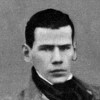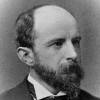“ Any public man who may for years have used some other man's house as his own, when promoted to a position of patronage commonly feels himself obliged to inquire, directly or indirectly, whether his friend wants anything ”
Henry Adams, The Education of Henry Adams (1906). copy citation
| Author | Henry Adams |
|---|---|
| Source | The Education of Henry Adams |
| Topic | house public |
| Date | 1906 |
| Language | English |
| Reference | |
| Note | |
| Weblink | http://www.gutenberg.org/files/2044/2044-h/2044-h.htm |
Context
“The point was never raised with regard to him, or to any one else. The Government required candidates to offer; the business of the Executive began and ended with the consent or refusal to confer. The social formula carried this passive attitude a shade further. Any public man who may for years have used some other man's house as his own, when promoted to a position of patronage commonly feels himself obliged to inquire, directly or indirectly, whether his friend wants anything; which is equivalent to a civil act of divorce, since he feels awkward in the old relation. The handsomest formula, in an impartial choice, was the grandly courteous Southern phrase of Lamar: "Of course Mr.”
source


